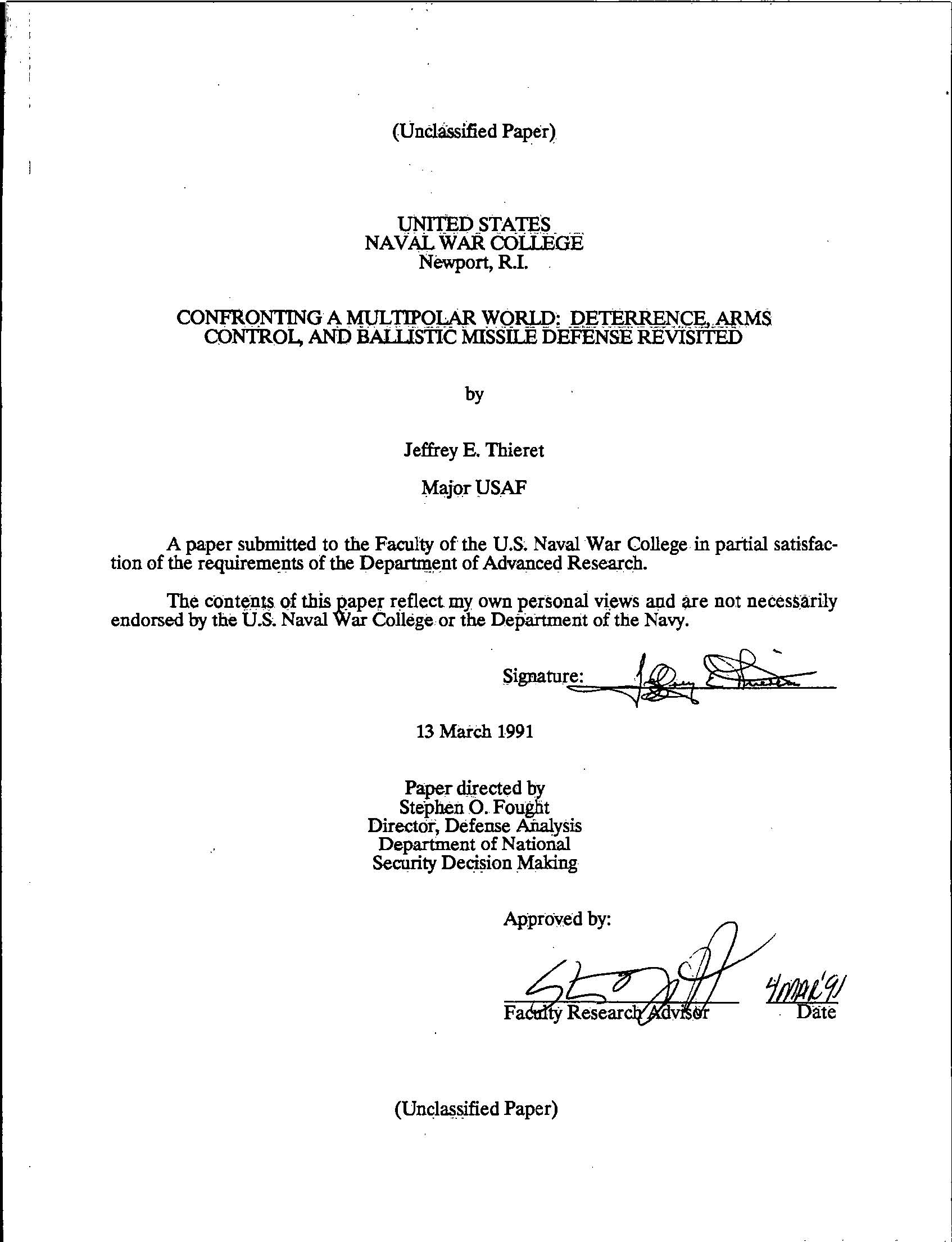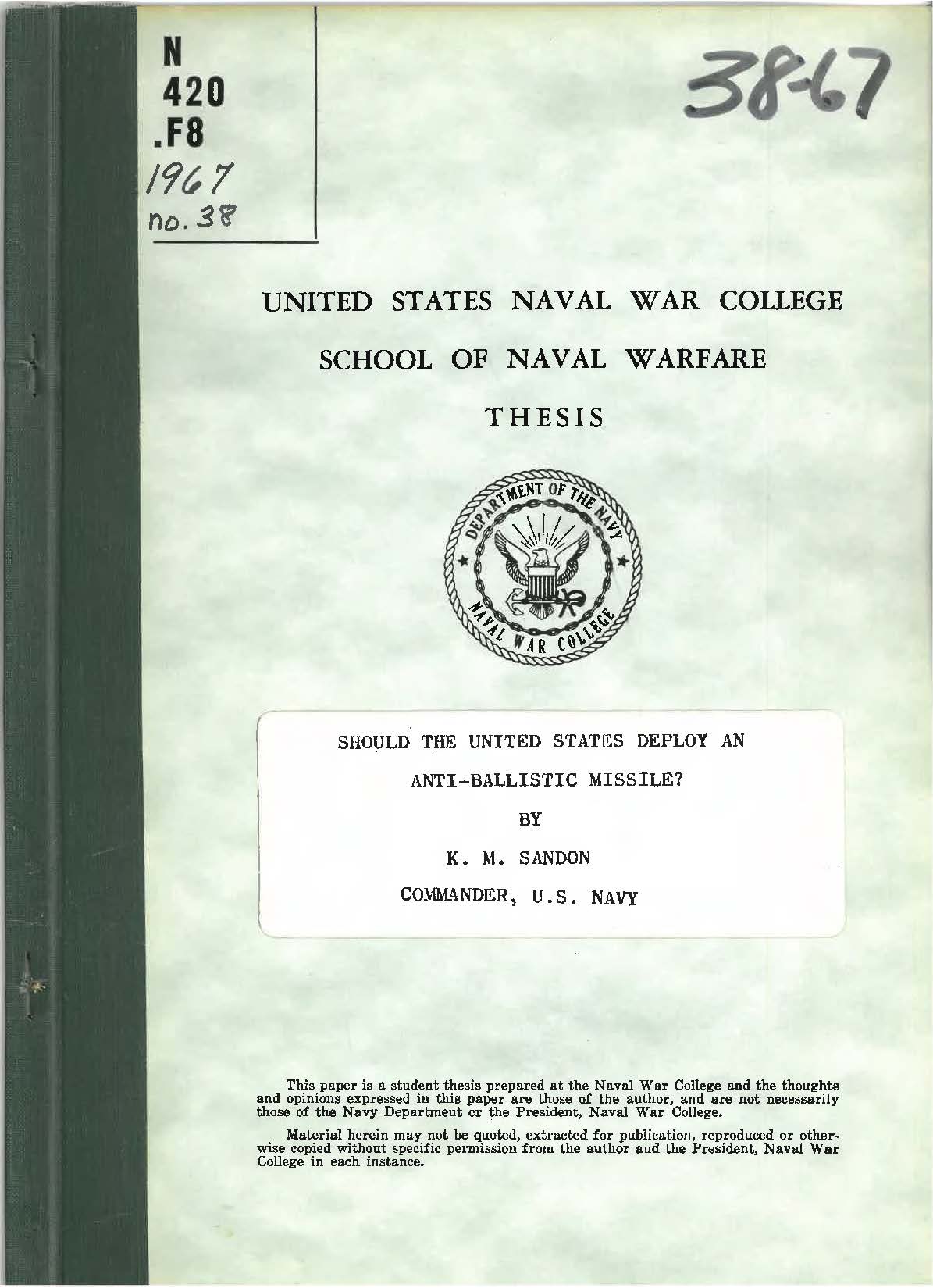Ballistic missile defenses -- United States
Subject
Subject Source: Library of Congress Subject Headings
Found in 4 Collections and/or Records:
Confronting A Multipolar World: Deterrence, Arms Control, And Ballistic Missile Defense Revisited, 1991 Mar 31
File — Box 6-39, Folder: 3
Identifier: RG-37
Abstract
The end of the Cold War and the resultant collapse of the bipolar world order are resulting in the gradual emergence of regional Third World powers. America is left unchallenged as a global superpower, yet its national strategy must now adapt to deal with a certain degree of multipolarity based upon the regional power centers. The U.S. can achieve global security through of impellance. Impellance, which is proactive and forcible, replaces the entrenched bipolar Cold War national security strategy with a globally oriented one. The added strength of reliable alliances allows an impellant U.S. to lead a collective of nations which desire a new world order. Impellance addresses the need for increased protections against a rising ballistic missile threat in the Third World. Ballistic missile arsenals are viewed as regionally destabilizing, giving belligerent nations the ability to leapfrog over neutral or adjacent nations to inflict psychological and physical damage upon insulated states. Third World ballistic missile systems are rapidly improving through arms and technology transfers. Arms control efforts via impellent strategy, concentrating upon multiple aspects of the proliferation equation, provides both incentives and disincentives to slow the horizontal spread of technology and arms. Improved ranges and accuracies will still occur through indigenous regional improvements and natural technology transfers. Significantly improved anti-tactical ballistic missiles are needed...
Dates:
1991 Mar 31

Confronting A Multipolar World: Deterrence, Arms Control, And Ballistic Missile Defense Revisited, by Jeffrey E. Thieret
Digital Record
Identifier: RG37_06_39_03_01
Dates:
1991 Mar 31
Found in:
Naval War College Archives
Sandon, Kenneth M.: Should the United States deploy an anti-ballistic missile?, 1967 Apr 1
File — Box 276, Folder: 2
Identifier: RG-13- File N420 .F8 1967 no.38
Scope and Contents
Thesis by Commander Kenneth M. Sandon, USN on whether the U.S. should deploy an anti-ballistic missile. In this paper, he analyzed the military, economic, political and psychological factors that would determine this answer. He also researched to determine whether there is reasonable affirmative evidence to satisfy a decision to deploy an anti-ballistic missile system at the time of the publication of this paper or whether a preponderance of actual capabilities should exist prior to adopting an endorsement of deployment.
Dates:
1967 Apr 1
Found in:
Naval War College Archives
/
Student papers

Should the United States deploy an anti-ballistic missile?, by Kenneth M. Sandon
Digital Record
Identifier: RG13_276_02_01
Dates:
1967 Apr 1
Found in:
Naval War College Archives
